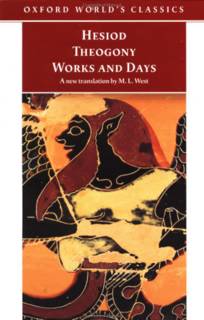
Finished Gilead last night and "Works and Days" the night before. Both are concerned with prodigals-the return of a son in the Robinson and the return of a brother in the Hesiod, and both, to some extent, deal with man's relationship to the divine, at least until the Hesiod devolves into being primarily a farmer's planting almanac, but I'm looking for similarities here.
Cloud Atlas segued nicely into Gilead since both contained an abolitionist character. John Ames, the preacher protagonist of Gilead, recounts, via a letter to his young son while pondering his fast-approaching demise, his grandfather's involvement with John Brown prior to the Civil War and how he joined with the Unionist army despite his age and subsequently lost an eye in battle. His own father, in seeming rebellion against his father's bloody shirted radicalism, joins with the Quakers and becomes a pacificist. Ames himself, while no Quaker, is just as intent on avoiding conflicts and ill thoughts. He refuses to condemn his brother, who comes home from Germany an atheist, and relays how his father believes his own refusal to attend his father's church was much worse than his own son's eventual disbelief. The only person he can manage to think poorly of is his namesake, the son of his lifelong best friend (also a minister), who he acknowledges has always had a mean streak and has caused much harm to others. When his namesake returns to Gilead after many unaccounted years elsewhere, Ames is forced to examine his relationship to this prodigal and rethink much he'd regarded as settled fact.
Digressive, meandering, quiet and profound, there's much to ponder in this. I think all those eager readers of Revelations fanfic aka The Left Behind series ought to read this as well, but its absence of pyrotechnics, its refusal to denounce certainly isn't the brand of Christianity currently hogging the headlines. John Ames manages to be a good, gentle man of God without ever stooping to self-righteousness or sanctimony.
"Works and Days," I believe, contains the earliest written version of the Prometheus and Pandora myths and the metallic ages of man. Hesiod recounts these myths in an effort to keep his greedy brother, who wants to get his hands on some of Hesiod's property, in check. And, oh, the lengths to which Hesiod goes to advise brother Perses-wear a proper hat so your ears don't get wet; don't pee in the road or in the river; don't cut your fingernails at feasts with the gods! Entertaining stuff.



No comments:
Post a Comment